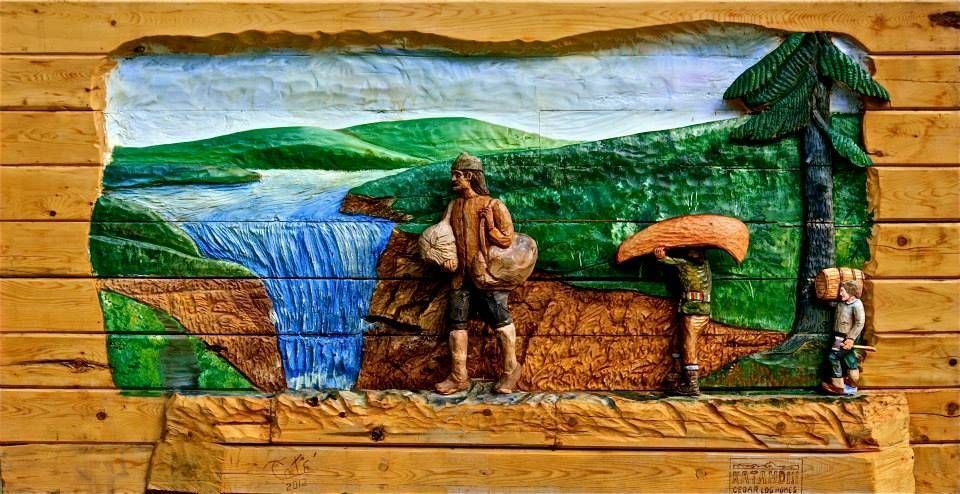Acadian Roadside Wood Panels (Tom Cote)

Le Grand Portage
When the Acadians fled the St John River, a major stopping point was Grand Falls in Canada.
Roosevelt School
588 Hamlin Road (US Route 1A), Hamlin
47.117713, -67.887451
Harvest on the Family Farm
Family farm in the fall. Everyone took part in the harvest either in the home or out in the field.
Governor Brann School Building
218 Caribou Road (US Route 1)
Cyr Plantation
47.121668, -67.962016
Tante Blanche
While the men were away working in the woods, Tante Blanche helped care for the women and children of the area. She saved many lives during those first winters by distributing food and supplies to the women and children left behind.
Tante Blanche Museum
774B US Route 1, St. David (Madawaska)
47.348930, -68.276245
The Four Seasons
Depiction of life over the course of the year in the St. John Valley.
Ste. Agathe Historical Society Museum
477 Main Street, St. Agatha
47.236564, -68.300494
Maple Sugar Camp
Scene of tapping the maple trees in late winter or early spring for its sap which was collected and carried to the sugar house by horse-drawn sled where it was boiled down to make syrup and sugar.
Frenchville Heritage Park & Historical Society
306 US Route 1, Frenchville
47.279919, -68.388698
Forestry
Logging was the most important industry in the Valley. Many communities were settled around this work and it was hard work from sun-up to sundown.
Veteran’s Memorial Park
Town Square, Portage Lake
46.759937, -68.475950
Acadian Roadside Wood Panels (Tom Cote)
Scattered along the roadside throughout the St. John Valley, you may notice a series of 4ft. x 8ft. carved wood panels depicting a scene of Acadian history. Tom Côté, an internationally renowned wood carver from Limestone, ME was commissioned to sculpt this series of eight panels to be placed throughout the St. John Valley for the 2014 World Acadian Congress.
Contact St. John Valley Chamber of Commerce today.



